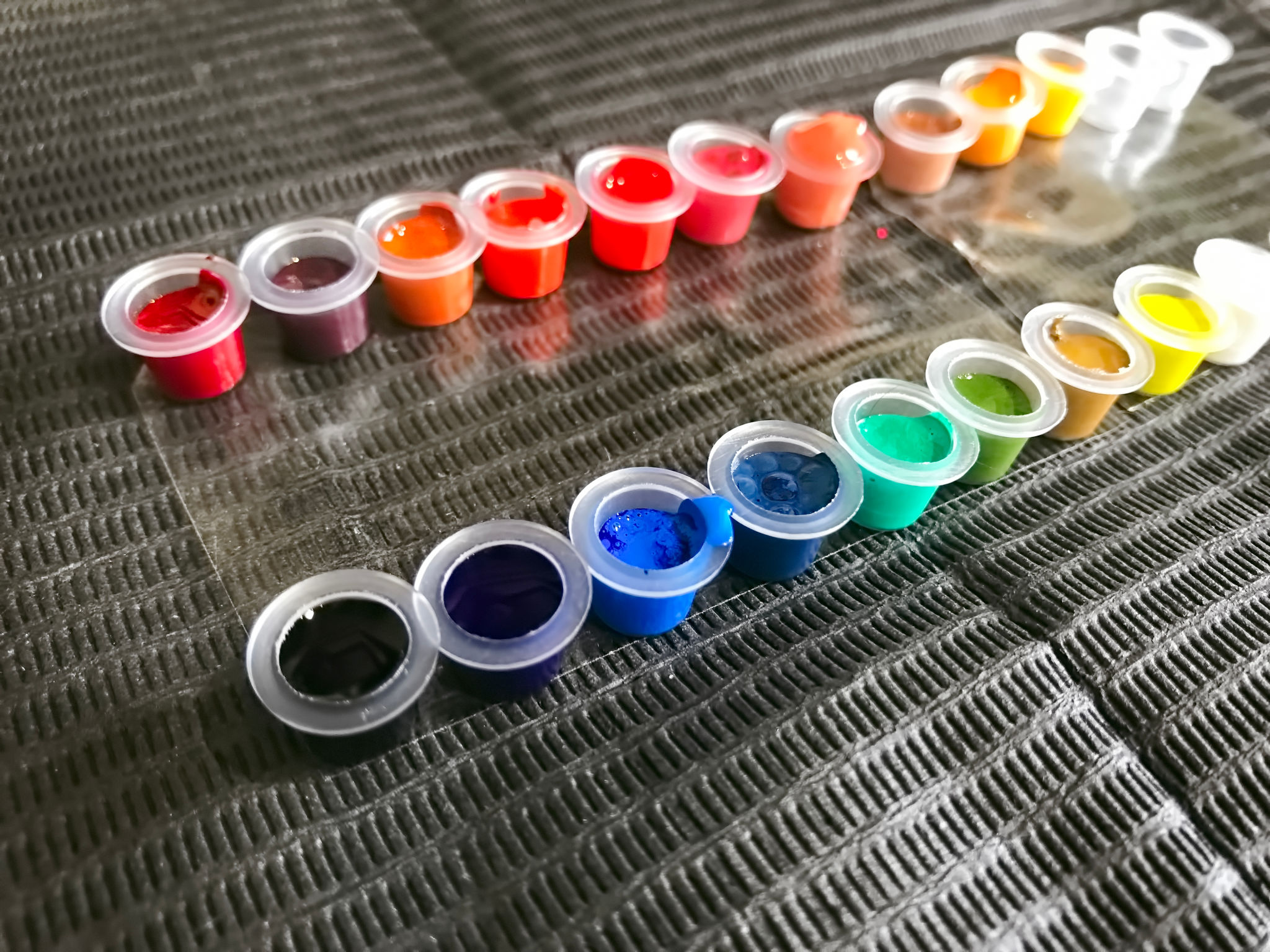Comparing Tattoo Ink Options: Which is Right for You?
Understanding Tattoo Ink Basics
When considering a tattoo, one of the most critical decisions involves choosing the right ink. Tattoo ink not only affects the appearance of your design but also plays a role in your skin's health and the longevity of your tattoo. Understanding the different types of tattoo inks available can help you make an informed decision that aligns with your aesthetic preferences and personal values.
Tattoo inks are composed of pigments combined with a carrier solution. The pigments provide the color, while the carrier solution helps to evenly distribute the pigment and prevent contamination. There are various types of inks based on their composition and the effects they produce.

Traditional Tattoo Ink
Traditional tattoo inks have been a staple in the industry for decades. These inks typically use pigments derived from metal salts and other natural ingredients. They are known for their bold, vibrant colors and long-lasting results. However, some traditional inks may contain allergens or substances that might cause adverse reactions in sensitive individuals.
Pros and Cons of Traditional Inks
Pros:
- Rich, vibrant colors
- Long-lasting durability
- Widely used and trusted by many tattoo artists
Cons:
- Potential for allergic reactions
- Some inks contain heavy metals

Vegan Tattoo Ink
For those who lead a vegan lifestyle or are concerned about animal welfare, vegan tattoo inks offer a cruelty-free alternative. These inks do not contain any animal-derived ingredients and are free from testing on animals. Instead, they use synthetic pigments and plant-based carriers.
Benefits of Vegan Inks
Benefits include:
- Cruelty-free and environmentally friendly
- Less likely to cause allergies for those sensitive to animal products
- Available in a wide range of colors

Organic Tattoo Ink
Organic tattoo inks are another option for those looking for a more natural approach. These inks are made from natural ingredients and are free from synthetic chemicals. They appeal to individuals who aim to minimize exposure to artificial substances.
Considerations for Organic Inks
Considerations include:
- Natural ingredients may reduce risk of chemical exposure
- Some colors may not be as vibrant as synthetic options
- Availability can vary depending on location and artist preferences
Choosing the right tattoo ink involves weighing the pros and cons of each type based on your personal preferences, skin type, and ethical considerations. Consulting with a professional tattoo artist can provide valuable insights and help ensure you achieve the desired outcome for your body art.
